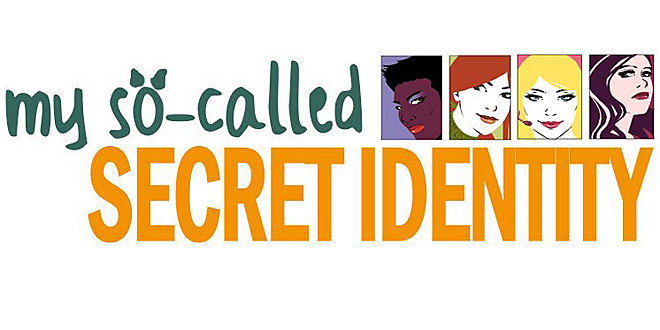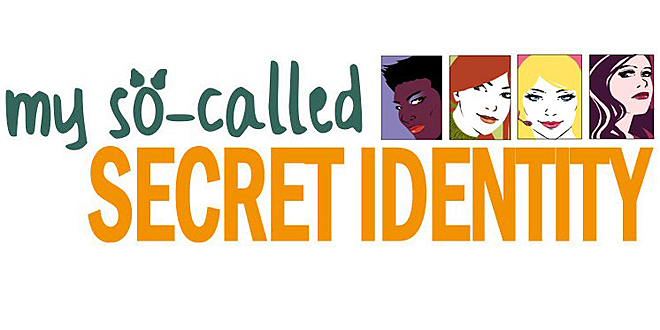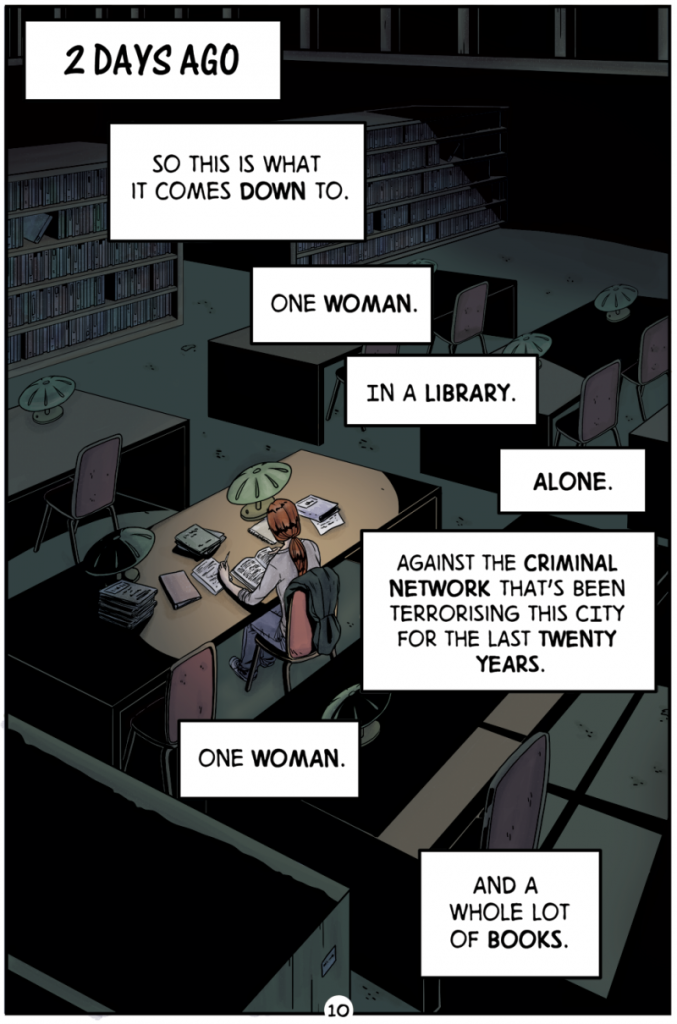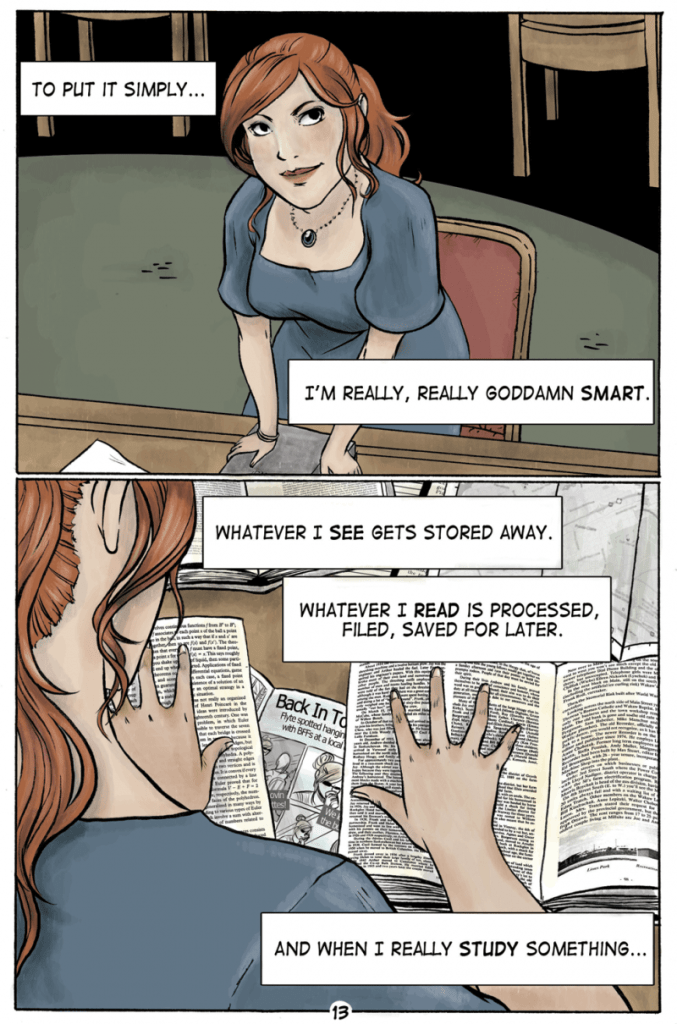 Last summer I learned of a Kickstarter fundraiser for a comic called My So-Called Secret Identity. Being a fan of My So-Called Life in the ’90s, I was compelled by the title. As I clicked through the website, I felt an instant draw both to the comic and to protagonist Cat, whose mantra “smart is a superpower” made me burst with pride. As a PhD and a student of feminist media studies, I instantly bonded with Cat’s celebration of smart women. I donated to the Kickstarter, and this week I was got lucky enough to ask Will Brooker, the creator of My So-Called Secret Identity, some questions.
Last summer I learned of a Kickstarter fundraiser for a comic called My So-Called Secret Identity. Being a fan of My So-Called Life in the ’90s, I was compelled by the title. As I clicked through the website, I felt an instant draw both to the comic and to protagonist Cat, whose mantra “smart is a superpower” made me burst with pride. As a PhD and a student of feminist media studies, I instantly bonded with Cat’s celebration of smart women. I donated to the Kickstarter, and this week I was got lucky enough to ask Will Brooker, the creator of My So-Called Secret Identity, some questions.
Adrienne Trier-Bieniek (TMS:) Tell me a little about the origins of My So-Called Secret Identity and Cat.
Will Brooker: There is a neat origin story to MSCSI, which starts October 2011. I had recently completed an academic book on Batman, and was writing articles online about Batgirl. I couldn’t help feeling the character had never really been used to her full potential, and I decided it would be more positive and productive to actually make something positive, rather than continue to criticize what had been done before.
This was the start of DC’s New 52, and the covers in my local comics store were dominated by glossy, almost soft-pornographic pin-ups of superheroines in skimpy outfits. I felt uncomfortable in the store, with the male owners giving me attitude as if it was their own personal space. I realized that if I didn’t feel welcome, there was surely no way a teenage girl getting into comics would walk in there and browse.
The obvious thought struck me that the female PhD students I supervise were also nothing at all like the women who dominated superhero comics; but Batgirl was a PhD student herself. Why couldn’t we have a comic about a superheroine who was actually like these real, intelligent women?
TMS: Where did the statement “Smart is a superpower” come from?
Brooker: A member of the team, Riven Alyx Buckley, actually came up with it. She was the first to run our social media accounts and I believe she invented it as a hashtag. It’s a great slogan and it really caught on.
The idea is right there in the comic though, from the first issue onwards. Cat finally snaps and announces to herself that she does have a special ability, a kind of superpower, and she’s really, really smart. It is our “hero shot.” It’s a key moment of self-belief and assertiveness.
TMS: As a scholar, is there an academic inspiration for this work? I am can see traces of The Gaze, Laura Mulvey, and Erving Goffman in the comic.
Brooker: Some ideas in MSCSI volume one are drawn from cultural studies and critical theory. The idea that order and disorder, control, and chaos are closely-related terms and that the hero depends on the villain to justify his own behavior, is a version of Jacques Derrida’s ideas about the relationship between ‘poison’ and ‘cure’.
MSCSI is also very much shaped by theories of feminist history, the marginalization of women’s stories and the way narratives are told from different point of view depending on who has the cultural power. I’ve read Mulvey and Goffman and their work no doubt informs MSCSI; in fact there’s a shout-out to Mulvey in issue three, when we include The Sexual Subject – a book that anthologizes her most famous article – on Cat’s bedside table.
TMS: What are your thoughts on the status of women in comics? What trajectory do you see for women in comics in the future?
Brooker: I think we need more women working in comics, as editors, writers and artists. Men can certainly have good intentions and there have been some positive changes since 2011, but I think to see genuine and substantial, sustained improvement we need more women working in the industry at all levels. We have seen progress over the last few years in terms of more “realistic” costumes for female characters, more attempts to appeal to female readers, including younger girls, and at least a few more prominent women working in the industry, but I think the mainstream editorial still seems very male-dominated, and dominated by a certain kind of approach for a certain type of reader.
Personally, I think comics still feel like they belong in a teenage boy’s bedroom, and we need to make more changes before more girls and women are going to want to join in. More info on My So-Called Secret Identity can be found at http://www.mysocalledsecretidentity.com/.
Adrienne Trier-Bieniek, PhD, is a gender and pop culture sociologist. She is the author of Sing Us a Song, Piano Woman: Female Fans and the Music of Tori Amos (Scarecrow Press 2013) and the co-editor of Gender and Pop Culture: A Text-Reader (Sense 2014). Her writing has appeared in various academic journals as well as xoJane, Gender & Society Blog, Feministing, and Girl w/Pen and she runs the Facebook page Pop Culture Feminism. Adrienne is a professor of sociology at Valencia College in Orlando, Florida.
—Please make note of The Mary Sue’s general comment policy.—
Do you follow The Mary Sue on Twitter, Facebook, Tumblr, Pinterest, & Google +?











Published: May 6, 2015 08:00 pm